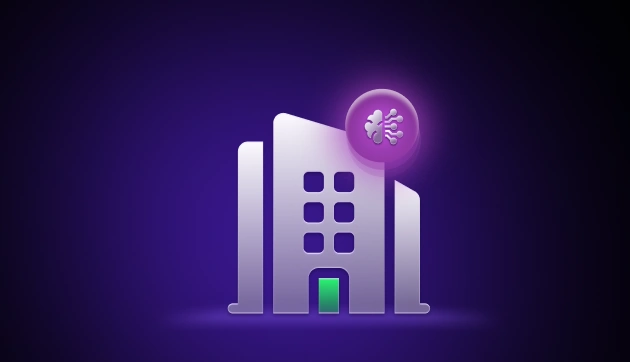![Top High-Paying Non-Coding Jobs in DevOps [2025] 1 Post thumbnail](https://www.guvi.in/blog/wp-content/uploads/2023/11/Top-10-Non-Coding-Jobs-in-DevOps.png)
Top High-Paying Non-Coding Jobs in DevOps [2025]
Mar 29, 2025 5 Min Read 17791 Views
(Last Updated)
DevOps (Development and Operations) is a field that focuses on improving collaboration and automation between software development and IT operations teams to deliver software more efficiently and reliably. While many DevOps roles involve coding and scripting, there are also non-coding jobs in DevOps that play crucial roles in the DevOps pipeline.
In the ever-evolving landscape of DevOps, the focus has long been on automation and coding to streamline software development and operations. However, not all DevOps roles require an extensive coding background. For those who are passionate about DevOps but prefer to minimize their coding involvement, there are plenty of non-coding DevOps jobs available.
In this blog, we’ll delve into the top 10 non-coding jobs in DevOps, shedding light on the roles and responsibilities, core skills required, tools and software knowledge, relevant certifications and training, salary ranges, career growth prospects, companies hiring, and work flexibility.
Table of contents
- Top High-Paying Non-Coding Jobs in DevOps [2025]
- DevOps Engineer/Architect
- DevOps Manager
- Release Manager
- Quality Assurance (QA) Engineer in DevOps
- Technical Support and Operations
- Configuration Management
- Cloud Infrastructure and Operations
- Compliance and Security Specialists
- Business Analyst
- Documentation and Training
- Conclusion
- FAQs
- What are the non-coding jobs in DevOps?
- Do DevOps people do coding?
- What is the salary of DevOps engineer without coding?
- Can I work in DevOps without coding?
- What are the tools required for non-coding job roles?
Top High-Paying Non-Coding Jobs in DevOps [2025]
Gain the necessary skills required and you’re all ready to get into DevOps engineering. Here are some of the top non-coding jobs in DevOps:
1. DevOps Engineer/Architect
While DevOps engineers often write scripts and code for automation, they also design and manage the overall DevOps infrastructure, pipelines, and processes. This role involves planning, coordinating, and overseeing the entire DevOps strategy, making it a non-coding aspect of the field.
Roles and Responsibilities:
- Design and manage the overall DevOps infrastructure and processes.
- Coordinate and oversee the DevOps strategy for your organization.
Core Skills Required:
- Strong understanding of DevOps principles and practices.
- Exceptional problem-solving and communication skills.
Tools and Software Knowledge:
- Jenkins
- Docker
- Ansible
Relevant Certifications and Training:
- DevOps Institute certifications.
- AWS Certified DevOps Engineer.
Salary Range:
- ₹6,00,000 – ₹10,00,000 annually.
Career Growth and Progression Paths:
- DevOps Manager.
- Cloud Architect.
Companies Hiring DevOps Engineers/Architects:
- Uber
- Airbnb
- Etsy
- Shopify
- Adobe
Work Flexibility:
- Typically onsite with some remote work options.
2. DevOps Manager
DevOps managers focus on strategy, team coordination, and process optimization. They are responsible for aligning the DevOps efforts with the organization’s business goals, managing teams, and ensuring that DevOps practices are implemented effectively.
Roles and Responsibilities:
- Strategically plan DevOps initiatives and align them with business objectives.
- Manage and lead DevOps teams and processes.
Core Skills Required:
- Strong leadership and project management skills.
- Business acumen to align DevOps with organizational goals.
Tools and Software Knowledge:
- Proficiency in DevOps tools and principles.
Relevant Certifications and Training:
- PMP (Project Management Professional).
- DevOps leadership and management courses.
Salary Range:
- ₹8,00,000 – ₹13,00,000 annually.
Career Growth and Progression Paths:
- Director of DevOps.
- Chief Information Officer (CIO).
Companies Hiring DevOps Managers:
- Oracle
- Netflix
- Apple
- Salesforce
Work Flexibility:
- Office-based with flexibility depending on company culture.
3. Release Manager
Release managers oversee the deployment of software releases and ensure that they are delivered smoothly to production. This role involves coordinating with development, testing, and operations teams and often doesn’t require extensive coding.
Roles and Responsibilities:
- Oversee the deployment of software releases.
- Coordinate with development, testing, and operations teams.
Core Skills Required:
- Strong organizational and communication skills.
- Attention to detail and process management.
Tools and Software Knowledge:
- Release management tools.
Relevant Certifications and Training:
- Certified Scrum Master (CSM).
Salary Range:
- ₹6,00,000 – ₹11,00,000 annually.
Career Growth and Progression Paths:
- Release Director.
- Product Manager.
Companies Hiring Release Managers:
- Adobe
- SAP
- Uber
- Airbnb
- Netflix
Work Flexibility:
- Typically onsite with some remote work options.
4. Quality Assurance (QA) Engineer in DevOps
QA engineers work to ensure the quality and reliability of software throughout the DevOps pipeline. They may use testing and quality assurance tools and processes to verify that the software meets the required standards.
Roles and Responsibilities:
- Ensure the quality and reliability of software throughout the DevOps pipeline.
- Implement testing and quality assurance processes.
Core Skills Required:
- Expertise in testing methodologies and tools.
- Attention to detail and analytical skills.
Tools and Software Knowledge:
- Selenium
- Appium
- Cucumber
- Katalon Studio
Relevant Certifications and Training:
- ISTQB (International Software Testing Qualifications Board).
- Certified Agile Tester.
Salary Range:
- ₹5,00,000 – ₹9,50,000 annually.
Career Growth and Progression Paths:
- QA Manager.
- Test Automation Engineer.
Companies Hiring QA Engineers in DevOps:
- Nagarro
- Microsoft
- Accenture
- TCS
- Infosys
Work Flexibility:
- Onsite and remote work options depending on the project.
As we continue, we’d like to ensure you understand the fundamental DevOps concepts. You can consider enrolling in GUVI’s DevOps Course, which lets you gain practical experience by developing real-world projects and covers technologies such as Agile, Scrum, Linux, Git, Bash Scripting, Dockers, Containers, AWS infrastructure, etc.
Additionally, if you want to explore AWS Infrastructure through a Self-paced course, try GUVI’s AWS Infrastructure certification course.
5. Technical Support and Operations
Some individuals in the DevOps field focus on supporting and maintaining the production environment. This includes monitoring system health, responding to incidents, and performing routine maintenance. While scripting and automation may be involved, this role is not primarily coding-centric.
Roles and Responsibilities:
- Monitor system health, respond to incidents, and perform routine maintenance.
- Ensure the stability and availability of production systems.
Core Skills Required:
- Troubleshooting and problem-solving abilities.
- Strong understanding of IT operations.
Tools and Software Knowledge:
- Nagios
- PagerDuty
- SolarWinds
- LogRhytm
Relevant Certifications and Training:
- CompTIA A+.
- ITIL Foundation.
Salary Range:
- ₹4,00,000 – ₹7,50,000 annually.
Career Growth and Progression Paths:
- Systems Administrator.
- Network Administrator.
Companies Hiring Technical Support and Operations:
- Walmart
- Amazon
- Meta
- Microsoft
- Flipkart
Work Flexibility:
- Mostly onsite for maintenance, with on-call responsibilities.
6. Configuration Management
Configuration management specialists are responsible for managing and maintaining the consistency and integrity of the software environment, ensuring that the right configurations are applied to servers and infrastructure. Tools like Puppet and Ansible are commonly used in this role.
Roles and Responsibilities:
- Manage and maintain consistent software configurations.
- Apply the right configurations to servers and infrastructure.
Core Skills Required:
- Strong knowledge of configuration management tools and practices.
- Attention to detail and organizational skills.
Tools and Software Knowledge:
- Puppet
- Ansible
- Chef
Relevant Certifications and Training:
- Puppet Certified Professional.
- Ansible Certification.
Salary Range:
- ₹5,00,000 – ₹9,00,000 annually.
Career Growth and Progression Paths:
- DevOps Engineer.
- Infrastructure Architect.
Companies Hiring Configuration Management Specialists:
- Amazon
- Microsoft
- Flipkart
- Accenture
- TCS
Work Flexibility:
- Mostly onsite, with some remote work options.
7. Cloud Infrastructure and Operations
Cloud engineers or administrators manage cloud-based infrastructure, including provisioning and managing resources on platforms like AWS, Azure, or Google Cloud. This role involves resource optimization, cost management, and monitoring, with minimal coding required.
Roles and Responsibilities:
- Provision and manage resources on cloud platforms (e.g., AWS, Azure, Google Cloud).
- Optimize resource utilization and manage costs.
Core Skills Required:
- Proficiency in cloud platform services.
- Strong problem-solving abilities.
Tools and Software Knowledge:
- AWS
- Azure
- Google Cloud
Relevant Certifications and Training:
- AWS Certified Solutions Architect.
- Azure Administrator.
Salary Range:
- ₹4,50,000 – ₹8,50,000 annually.
Career Growth and Progression Paths:
- Cloud Architect.
- Cloud Security Specialist.
Companies Hiring Cloud Infrastructure and Operations:
- Amazon
- Microsoft
- Walmart
- Flipkart
Work Flexibility:
- Remote work is common, but it may vary by employer.
8. Compliance and Security Specialists
Ensuring that software and infrastructure comply with security and regulatory standards is crucial in DevOps. Compliance and security specialists work on maintaining and enhancing the security and compliance posture of the system, and this may not involve extensive coding.
Roles and Responsibilities:
- Ensure software and infrastructure adhere to security and regulatory standards.
- Enhance the security posture of the system.
Core Skills Required:
- In-depth knowledge of security best practices and compliance standards.
- Strong analytical and problem-solving skills.
Tools and Software Knowledge:
- Qualys
- Metaspoilt
- Nikto
- Firewall
Relevant Certifications and Training:
- Certified Information Systems Security Professional (CISSP).
- Certified Information Security Manager (CISM).
Salary Range:
- ₹5,50,000 – ₹10,00,000 annually.
Career Growth and Progression Paths:
- Security Analyst.
- Security Architect.
Companies Hiring Compliance and Security Specialists:
- Accenture
- Infosys
- Walmart
- TCS
- Amazon
Work Flexibility:
- Typically onsite due to security requirements.
9. Business Analyst
Business analysts in DevOps assess the impact of changes and improvements in the software development and delivery process on the business. They provide insights and recommendations to optimize processes and ensure alignment with business goals.
Roles and Responsibilities:
- Assess the impact of DevOps changes on business processes.
- Provide insights and recommendations to optimize processes.
Core Skills Required:
- Business analysis and process improvement skills.
- Strong communication and collaboration abilities.
Tools and Software Knowledge:
- Heflo
- Kisflow
- Appian
Relevant Certifications and Training:
- Certified Business Analyst Professional (CBAP).
- Agile Business Analysis Certification.
Salary Range:
- ₹4,50,000 – ₹8,50,000 annually.
Career Growth and Progression Paths:
- Business Analyst Manager.
- Product Owner.
Companies Hiring Business Analysts in DevOps:
- Microsoft
- Amazon
- Flipkart
- Accenture
Work Flexibility:
- Onsite with potential for remote work based on company policies and project requirements.
10. Documentation and Training
Technical writers create and maintain documentation for the DevOps pipeline, processes, and tools. They may also be involved in providing training and knowledge sharing among DevOps teams.
Roles and Responsibilities:
- Create and maintain documentation for the DevOps pipeline, processes, and tools.
- Provide training and knowledge sharing among DevOps teams.
Core Skills Required:
- Strong written and verbal communication skills.
- Ability to translate technical information into understandable content.
Tools and Software Knowledge:
- Document360
- GitHub
- GitBook
- Sphinx
- LibreOffice
Relevant Certifications and Training:
- Technical writing courses.
- Training and facilitation certification.
Salary Range:
- ₹4,00,000 – ₹7,50,000 annually.
Career Growth and Progression Paths:
- Senior Technical Writer.
- Training Manager.
Companies Hiring Documentation and Training Specialists:
- Microsoft
- Flipkart
- Amazon
- Flipkart
Work Flexibility:
- Office-based with occasional opportunities for remote work, depending on company policies.
Conclusion
Know about the DevOps roles and responsibilities, and job description. While these jobs in DevOps may not require extensive coding, they often benefit from a basic understanding of scripting and automation to collaborate effectively with DevOps engineers who are involved in writing code.
You should definitely learn the things required to become a DevOps engineer beforehand. Additionally, these non-coding jobs in DevOps are critical for achieving the broader goals of DevOps, such as improved collaboration, faster delivery, and higher-quality software.
Want to get into Cloud computing in just a few days of learning? Just a click away. Join our DevOps Course with Placement Assistance which gives you quality content, along with real-time projects.
FAQs
Some of the non-coding job roles for DevOps professionals are:
Cloud Network Engineer
Cloud Infrastructure and Operations
Business Analysts for DevOps
Release Manager
Yes, DevOps engineers write code to automate processes involved with software maintenance and deployment, including infrastructure management. They collaborate with developers and other teams to develop and rapidly deploy reliable, efficient and scalable software.
The salary of a DevOps engineer without coding is around 3.7 lakhs per year.
Yes, it is possible to learn and work on DevOps without programming knowledge, but having some programming knowledge can be helpful in certain areas of DevOps.
The tools required for non-coding job roles are:
Jenkins
Docker
Ansible





















![Top 10 Mistakes to Avoid in Your Data Science Career [2025] 2 data science](https://www.guvi.in/blog/wp-content/uploads/2023/05/Beginner-mistakes-in-data-science-career.webp)









Hire Remote Dot Net Developers Hiring remote .NET developers offers numerous benefits, from accessing a global talent pool to cost savings and increased flexibility. However, it also comes with challenges that require thoughtful strategies and best practices. By clearly defining requirements, utilizing reliable platforms, conducting rigorous screening, and fostering effective communication, businesses can successfully hire and integrate remote .NET developers into their teams. Embracing this modern approach not only enhances productivity and innovation but also positions companies to thrive in an increasingly digital and connected world.
Hire Remote Distributed Engineers Hiring remote distributed engineers is more than a trend; it is a strategic move that offers numerous advantages for businesses seeking to thrive in a digital-first world. By tapping into a global talent pool, reducing costs, increasing productivity, and fostering diverse perspectives, companies can unlock new levels of growth and innovation. With the right tools, processes, and culture in place, the potential for remote distributed engineering teams is limitless, paving the way for a more dynamic and resilient future of work.
Hire Remote Eedicated Engineers Hiring remote dedicated engineers can be a game-changer for businesses looking to enhance their technical capabilities while remaining agile and cost-efficient. By tapping into a global talent pool, companies can find top-tier engineers who bring diverse skills and perspectives. Despite the challenges, with the right strategies and tools in place, businesses can successfully integrate remote engineers into their teams and reap the numerous benefits they offer. Embracing this modern approach to talent acquisition can position your company for sustained success and innovation in today’s competitive landscape.
Hire Engineers Engineers are at the forefront of innovation. They bring technical expertise, problem-solving skills, and creativity to the table, enabling businesses to develop new products, improve existing ones, and stay competitive in the market. Whether it’s developing cutting-edge software, designing advanced machinery, or creating sustainable solutions, engineers are essential for driving innovation.
In the bustling landscape of Delhi, where businesses thrive on innovation and agility, finding the right talent can be the key differentiator between success and stagnation. In this dynamic environment, companies often face challenges in sourcing, hiring, and retaining skilled professionals. This is where staff augmentation emerges as a strategic solution, offering flexibility, scalability, and expertise precisely when and where it's needed.
Best Staff Augmentation Company Staff augmentation is a flexible staffing strategy that allows organizations to scale their teams quickly and efficiently by hiring external professionals on a temporary or project basis. Whether it's IT specialists, developers, designers, project managers, or other professionals, staff augmentation enables businesses to access specialized expertise without the overhead costs and long-term commitments associated with traditional hiring.